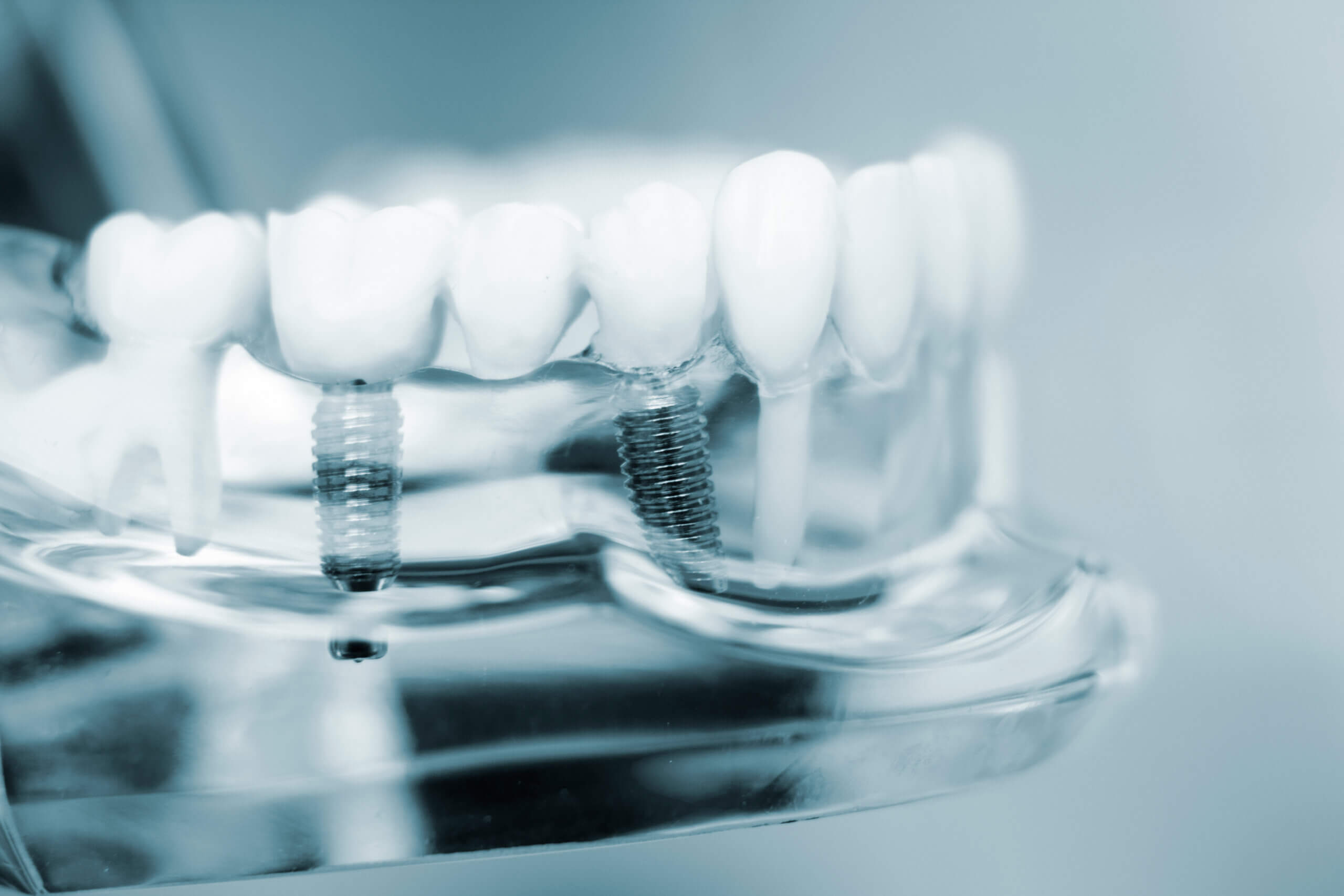
Bridge vs. Implant: Deciding Between Two Tooth Replacement Options
Tooth loss impacts a large percentage of the population, especially older adults. Approximately one-quarter (26 percent) of adults 65 and older have eight or fewer teeth. About 1 in 6 (17 percent) of this group have no remaining teeth. Finding a suitable tooth replacement option for missing teeth is essential to restore your confidence and oral function, whether due to decay, injury, or other factors. Let’s look at the two most common tooth replacement options: dental bridges and implants.
Dental Bridges: What are They and What are the Benefits?
Dental bridges are designed to replace one or more missing teeth by essentially “bridging” the gap between existing teeth. These prosthetic devices are typically anchored by crowns on either side of the gap, with a false tooth called a pontic in the space.
Bridges are best suited for patients with healthy adjacent teeth supporting the bridge. Once in place, a bridge can restore your smile’s aesthetics and function.
Pros:
- Quick placement: The procedure can be completed in just a few visits.
- Less invasive: No surgical procedure is required.
- Immediate results: Patients can leave the dental office with a new smile.
Cons:
- Alteration of adjacent teeth: Healthy teeth may be filed down to support the bridge.
- Limited lifespan: Bridges last an average of 5 to 15 years.
- Bone Loss: Bridges do not prevent jawbone deterioration, which can occur after tooth loss.
Dental Implants: What are They and What are the Benefits?
Dental implants are a modern solution for missing teeth. They consist of a titanium post surgically implanted into the jawbone to serve as an artificial tooth root. Once integrated into the bone, a crown is attached to the post to create a natural-looking and fully functional tooth.
Implants are recommended for patients with adequate, healthy jawbones to support an implant.
Pros:
- Durability: With proper care, implants can last a lifetime.
- Bone preservation: Stimulates the jawbone to prevent deterioration that often follows tooth loss.
- Natural appearance: Dental implants are designed to look like natural teeth.
Cons:
- Higher cost: The initial expenses of implants can be costly.
- Surgical procedure: Getting dental implants requires surgery.
- Potential for complications: Some patients may experience infection or implant failure.
Comparing the Differences Between Dental Bridges and Implants
When considering either dental bridges or dental implants as a tooth replacement option, it’s essential to evaluate how each option measures up in critical areas, including the following:
Aesthetics
Both bridges and implants were created to help any false teeth blend seamlessly with your natural teeth. Depending on your chosen option, this may be done in different ways. For example, bridges use crowns supported by adjacent teeth to create a uniform appearance. Conversely, implants allow for more customization as the crown can be crafted to match the color, size, and shape of your teeth.
Functionality
Both options can restore your ability to speak and chew in terms of functionality. However, bridges can sometimes feel unstable and bulky, especially when they’re not fitted correctly. Implants feel more stable and natural when integrated directly into the jawbone.
Durability
One area where dental implants outshine the competition is durability. Compared to bridges, which have a relatively short lifespan of up to 15 years, dental implants can last the rest of your life with proper maintenance. However, patients who have implants are at a higher risk of infection and treatment failure.
Bone Health
After losing a tooth, the bone in the jaw can start to deteriorate. While bridges can help prevent adjacent teeth from shifting, they do not stimulate the jawbone, leading to bone loss over time. Dental implants act like natural tooth roots, providing the necessary stimulation to maintain bone density and prevent deterioration.
Book a Consultation for the Tooth Replacement Option That’s Right for You
Deciding between dental bridges and implants can significantly impact oral health, comfort, and well-being. Both tooth replacement options can offer unique advantages and drawbacks, and your ultimate decision should be based on the health of your remaining teeth, your long-term dental goals, and your budget. Book a consultation with our Melbourne, FL, dentist at Artistic Touch Dentistry to discuss your smile goals.

